I appreciate you supporting my work by clicking the ❤️ at the end. When you do so, it allows my content to become more visible. Thanks!
Like the majority of humans, I’ve spent a stunningly large portion of my life concerned with other people’s opinions of me. It has often been said, one of the gifts of aging is disabusing oneself of this habit. For me, I can say this is mostly true. However, it could be argued, to care about other people is to care about their opinions and, to a small extent, their opinions of you. So, I do still care what people think of me to an extent. For example, I’m not going to hang out with someone I clearly annoy or visa versa.
But, I don’t care if someone likes what I look like, for the most part. After all, identity is complex. Sure, appearance is one aspect of our identities, but there is a lot more to us than that: our actions, or impact on the world, our growth (or lack of it), etc. And as I have aged, I can honestly say the part of me which is my body has faded more into the background, and other aspects of my personality have come more to the foreground of my concerns when it comes to my place in the world. I am mostly concerned with making the most of every moment and every interaction with others I get to have, and rarely think about what I look like doing it, beyond having fun with it. After all, picking out clothes can be a fun art project and social experiment, can’t it?
This Substack was inspired by a discussion group I took place in recently. We were discussing our relationships with our bodies and what society’s impact on that relationship was. I believe the most provocative thing that struck me out of the entire discussion was how there was no real way to be correct about our attitudes: if you don’t pay attention to appearance, that can be judged negatively, but if you do pay attention to appearances, that can also be judged negatively. If you wear makeup, don’t wear makeup, exercise too little, exercise too much, all of it can be judged negatively. However, we also observed that perhaps we should all take all that judgement of both ourselves and others and switch the script to admiration. It is just as easy to admire someone’s choices as it is to judge them. We could choose to admire people spending time or not spending time on their physical appearance, excelling at physical fitness or focusing on other things, dressing to the nines or to choosing to be casual and comfortable. We agreed that the world would probably be a better place if we admired, instead of judged, others as well as ourselves.
As part of that discussion, we talked about our origin stories, a critical moment where we were suddenly aware of our appearances based on societal values. When did the patriarchy (societal standards) first impact our self-esteem? That was a difficult one for me to put a finger on. I did recall a haircut I got in the forth grade. I had just transferred to a new school, and was already self-conscious. People in Oregon were different from Californians. And I remember being excited about this haircut because we usually cut our hair at home, but my mom’s friend was a hairdresser. I had this great expectation of glamour associated with this cut. Unfortunately, that was not the result. It was the late seventies, and I had always had straight, shoulder length hair with bangs up to that point. However, after the haircut, I looked… well… very soon after the haircut the lunch lady mistook me for a boy. I was mortified. I honestly don’t know that I ever recovered from that mistake. The feeling of being less than feminine and not meeting societal expectations for girlhood or womanhood stayed with me until I was in high school. In fact, I probably spent a lot of my life feeling like I had something to prove in that regard.
I do recall not thinking about how I looked as a young child. It was a good feeling. I think you can see the lack of self-consciousness in my eyes before I got to school age.
In retrospect, I do recall being self-conscious on occasion before fourth grade, of course, but rarely decimated by self-consciousness. I was self-conscious about having sometimes wearing homemade clothes in kindergarten when my peers had store-bought clothes. I remember being self-conscious about being smart, as I was teased for it periodically. But, for the most part, I liked school, was mostly proud of myself, and was mostly happy in my skin until I was about nine or ten.
When I was looking at photos, I found this series of photos, and I think they are interesting.
This first photo I love. I remember being on the beach and just having fun. I didn’t care about how I looked to others. I didn’t care about the bathing suit, and I remember actually liking the shirt. I was just happy. Looking back at the feeling, I like to think these non-attached moments of youth can be a benchmark for nonattachment in the present.
This photo is also interesting because I remember being self-conscious here, and I think you can see it in my face. It can’t be much more than a year after the first photo, but I remember already being worried about how other people saw me. It begs a lot of questions for me, but most importantly, if there was one thing I could have done to eliminate the icky feeling and enjoy the moment, what was it? Whatever that is would be worth doing even now.
I recall being self-conscious in my swimwear and my clothes up until part-way through high school. Here is a photo of me my senior year, and I can see the recently won confidence in my face.
I felt more confident in my skin that year. I think some of it was I had started lifting weights and feeling more physically capable. I also felt more control over my life, having been accepted to college, translating into greater self confidence all around. Some of my confidence was I feeling attractive to men as well, which had been developing and improving all through high school. I felt popular for the first time since I was ten, and that affected my self-esteem.
I stayed confident through college. I don’t know when it started to be affected, but I do recall feeling sexy and confident while living in the Los Angeles area with my first husband. Interestingly, things took a turn when I got pregnant. I never noted that until just this moment, while writing this. I am sure it is true of many women, that pregnancy and being a mom changes a lot.
The next photo, I almost didn’t share. I don’t know why it makes me feel so uncomfortable. Maybe you can tell me your theory in the comments after you read this. This is the next, and last, photo I have of myself in a bikini. I do have photos of myself in the water, in one-piece bathing-suits after this, but nothing where I am, well, exposed. This photo is interesting because it was taken by John, my first husband, a few months after I gave birth to my first daughter. He said he was taking it because he thought I was sexy. I distinctly remember feeling awkward and not super sexy, though I was trying not to act that way. I was horribly self-conscious and wanted to sink into the lounge chair. I do look tense in the photo.
I look at the above picture, and I intellectually recognize it is not a bad photo, but it makes me cringe. Perhaps I feel exposed just looking at it? I don’t know. I wonder what internalized, societal overlays are affecting my feelings about it, if any. I suspect what is at the core of my discomfort is anticipating judgement… of myself. And this picture makes me feel vulnerable, thus making anticipation of judgement feel particularly personal and unnerving. I am working on that…
During our discussion of body image, we were prompted to discuss what has helped us heal our self image. Interestingly, not long after John took this photo of me, he encouraged me to become an exotic dancer, advocating it as a way to improve my self-esteem. I started dancing a few months after giving birth to my second daughter, Crystal. I talk in more detail about this period in Moving to Savannah, Bienvenidos a Miami, Sin City South, and All the Beautiful People.
Surprisingly, having to bare my all in front of strangers almost every night for over a year did improve my self- esteem, though it wasn’t the only impact on me. Ironically, what happened was, stripping taught me that appearances really didn’t matter. Sure, there were some clubs where all the women who worked there were stereotypically gorgeous, Barbie-doll types. However, many clubs included dancers of all shapes and sizes. There were women who had tiny breasts and women who had large breasts. There were women who were shaped like Twiggy and women who had very ample, child-bearing hips. There were women who were eighteen, and there were women who were forty. And all the women had admirers. In fact, there was one women, a featured performer, who weighed well over three-hundred pounds and travelled the country as a requested star-of-the-strip-clubs.
As I talk about in Sin City South, one night in Key West I had a young man call me over to his table. As his buddies watched, he leaned in and said, “You are the ugliest woman I have ever seen.” I’m not sure what possessed him to do this, and to their credit, his friends were horrified. But by that time, I had learned a valuable lesson from watching all the amazing and varied women around me interact with customers successfully. I laughed and replied, “Good thing not everyone is like you.” By that time, I had learned worrying about being likes and stereotypically attractive is a waste of time. There will always be someone who will like you and find you attractive, no matter who you are. Just be you and stop worrying about it. That’s what makes money in the strip clubs, and it also translates to what is successful in life.
Aging also helped me get over body image issues. Most of my adult life, when I was healthy, my weight never varied until I turned fifty. After going through menopause, I gained thirty pounds. I’ll admit, after over thirty years of one weight, this 20% or more increase worried me. I wondered if it was a health concern. I tried many things, but nothing would take the weight off for any period of time and none of the things I did to loose weight had positive health consequences. However, after five years, I recognized that if I don’t want to make weight the focus of my life, and I want to eat what I enjoy and makes me feel good, I am going to have to just accept this new weight as ideal. It was liberating. I got rid of all my old clothes and bought clothes a size up, that fit me well. I realize I could have done this years ago, and arguably should have. I feel good in my clothes, which fit and don’t make me feel fat, and feel good in my skin.
Oddly, my double mastectomy also contributed to the healing of my body image. Maybe it was because I had to do a lot of work to accept an appearance far from the accepted norm of attractiveness. Choosing not to have reconstructive surgery was a choice I was confident in for health reasons. And there were a couple of experiences that really helped me make peace with the new appearance that came along with that choice.
About three years ago, Quinn, her best friend, and I went to Kauai together. One day we were driving around the island, and we stopped at one of the beaches. We ran down to the water, and I immediately regretted not bringing a bathing suit. I wanted to go swimming so badly! I commented on this to the girls, but suddenly recognized, wait a minute… I don’t have boobs. I can just take my shirt off and go in the water!
To sound of the girls cheering, “Go mom! Go mom!” and, ironically, “Free the nipple!” I threw my shirt on the beach and walked into the water, with everyone on the beach looking on. It was very liberating. Now, don’t get me wrong, I was self-conscious. However, I also recognized that with at least a half-dozen, pot-bellied men trouncing around in their shorts, shirtless, I had absolutely nothing to be truly self-conscious about. The support of the girls, the Hawaii sun on my skin, and the warm, Kawai water were all validating of this liberating choice and the righteousness of the decision.
Now, in spite of my observation that pot-bellied men don’t get stuck worrying about what people think of them shirtless, I was still self-conscious about my added thirty pounds. However, not long after that, the girls and I went on a helicopter ride over the Kauai. In order to board a helicopter, you need to get weighed, as weight distribution is critical to a safe flight. One-by-one, Quinn, her friend, and I all got on the scale, as a woman wrote down our weights for the pilot. When she was done, the woman paused. “This is weird,” she commented, “you are all exactly the same weight.” She weighed herself to be sure the scale wasn’t broken, and it wasn’t. None of us could believe it. As we talked, we recognized that each of us thought the others looked great, and each of us thought we were heavier than the others, over our ideal weights, wishing we were less “fat.” But here we all were, exactly the same weight. We all deserved to be comfortable in our own skin. We reveled in the discovery we were all effectively the same, on par with women we each admired so much.
I had a similar experience to the beach swim in Kauai with two other daughters here at home. Not long after the mastectomy, I recognized I needed to get comfortable with my body again. I felt strongly about letting other people, women especially, see my scars and experience them as normal. As post-mastectomy bodies are not often made public, the change had been shocking for me, so I felt normalizing it would be a public service in many ways. I had shown a number of people the scars who were curious. However, though I recognized I could and arguably should now, I hadn’t gone out in public shirtless yet.
One day I was on our beach with two of my Samoan daughters. Because of their biology, both women are bigger than average. As we sat on the beach, they both commented they wanted to take of their shirts and and enjoy the sun in their bikinis, but they were too self-conscious to do so. I said, “I tell you what. I need to get more comfortable in my skin, too. If I take my shirt off and sunbathe topless, will that help you guys feel less self-conscious?” They both agreed. And, may I say, they both looked so beautiful. It made me sad it took me exposing my scars for them to feel comfortable, but also happy as we all enjoyed the sunshine, feeling safe supporting each other.
My late husband took pictures of family, cars, sunsets, his dog, and me. Often, he would take a photo of me, then walk over, show me the photo and say, “Cuuuuuuute.” Goofball. This is one of the last photos he took of me. Here I am, pushing sixty, arguably thirty-pounds overweight, boobless… and still “cute.” (Happy birthday, sweet man. You are missed.)
During the writing of this I observed, on one hand, we should all stop worrying about what other people feel about us, but on the other hand, it was helpful when someone admired me for who I was. I felt a little guilty about that at first, like compliments from people shouldn’t affect me or be needed if, by the same measure, I should ignore the comments and feelings of naysayers. Having said that, I am reminded of the bio-psycho-social model of health. It has been well recognized throughout medical research that physical, psychological, and social health are not only important, they are inextricably intertwined. If one area improves, all the others improve with it. One aspect of this is how a constructive social interaction does wonders for psychological and physical health. It is not a bad thing to surround oneself with people who love you for the same reasons you love yourself. Building yourself up socially is just as healthy as eliminating influences that bring you down physically (unhealthy food, smoking, etc.), psychologically (e.g. negative self-talk), or socially (e.g. poor boundaries). Good boundaries and a constructive social network are important and have a positive impact on self-image and all aspects of health.
Being flattered and happy after a compliment is literally good for you. We don’t have to feel superficial, conceited, or unrealistically reliant on others because we experience happiness when praised. Experiences that make us feel confident and positive are healthy. I am extremely fortunate to have spent the last twenty years surrounded by people who have supported my ability to feel good about myself. I have found that ability from within, as I mentioned in my story about the nightclub, which occurred more than twenty years ago, but my confidence has definitely been supported by the people around me since then, and that is a good thing.
The moral of this story is we all have the right to feel comfortable in our own skin. We can all be proud of who we are, whether we are Malibu Barbie, Ken, Allen, Skipper, or Weird Barbie. We all have the right to enjoy each moment and not spend it worrying about what someone else thinks of us, but also surrounding ourselves with people who genuinely admire and respect us. We are all beautiful, unique, admirable in different ways, and capable of different things. It is accurate for each of us to feel exceptional, because we are.
If you appreciate this post, please be sure to “heart” it. It improves the visibility of “Folding Plants and Watering Laundry” in Substack. Thanks for your support!




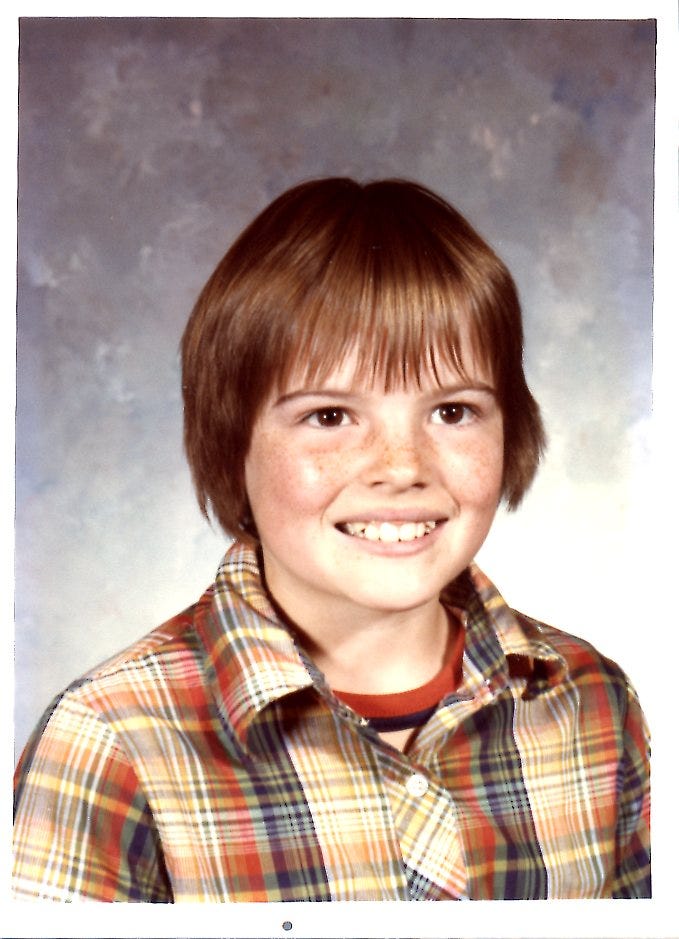
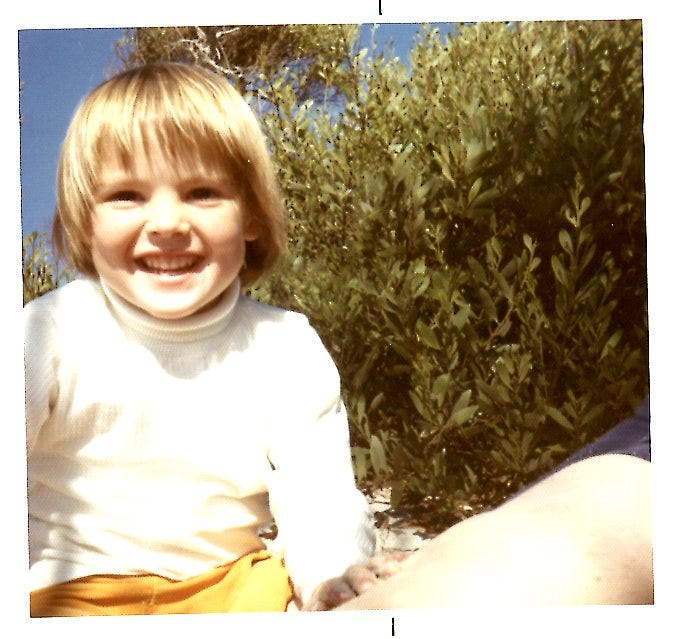
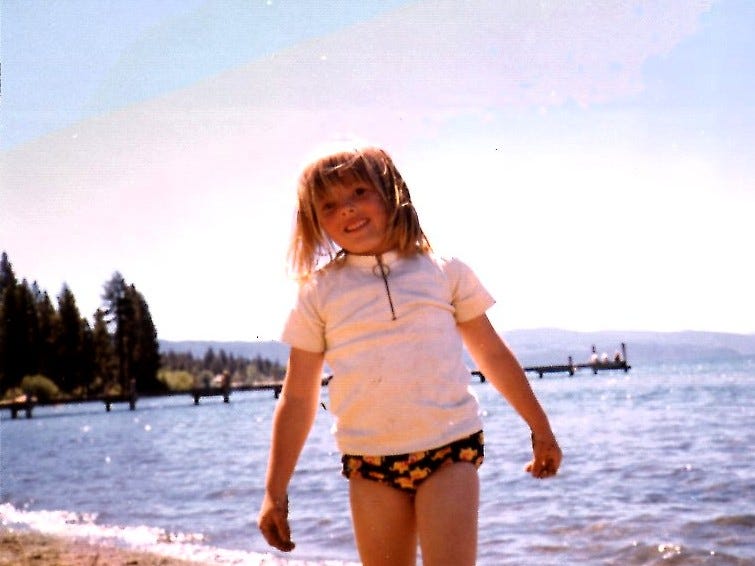
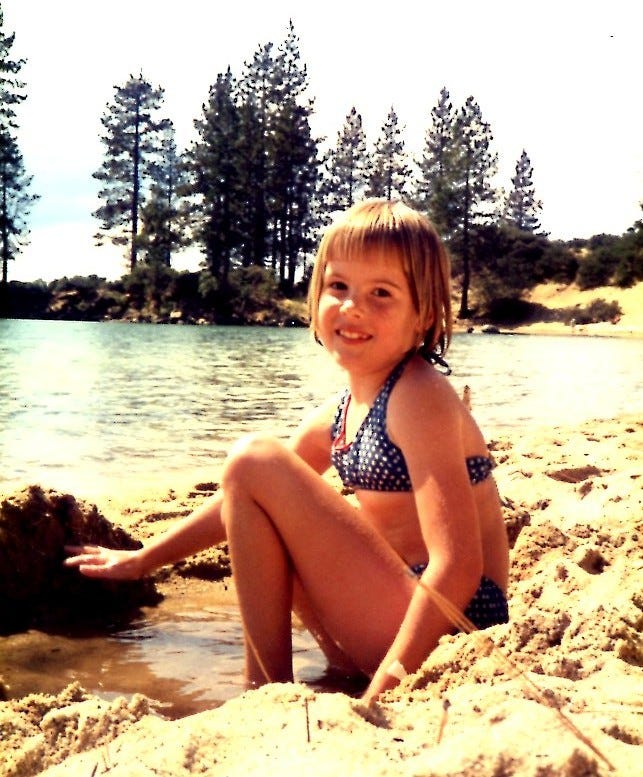
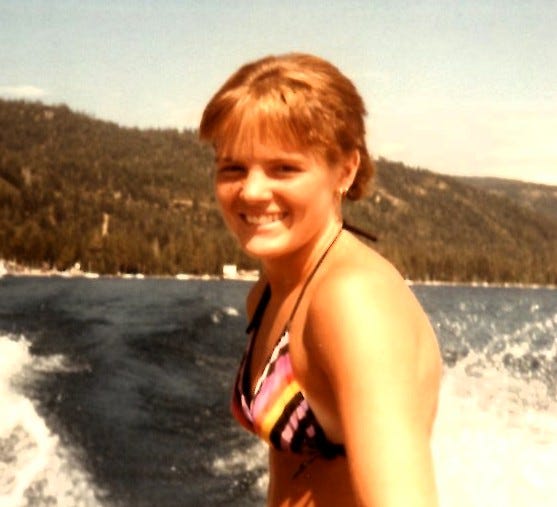
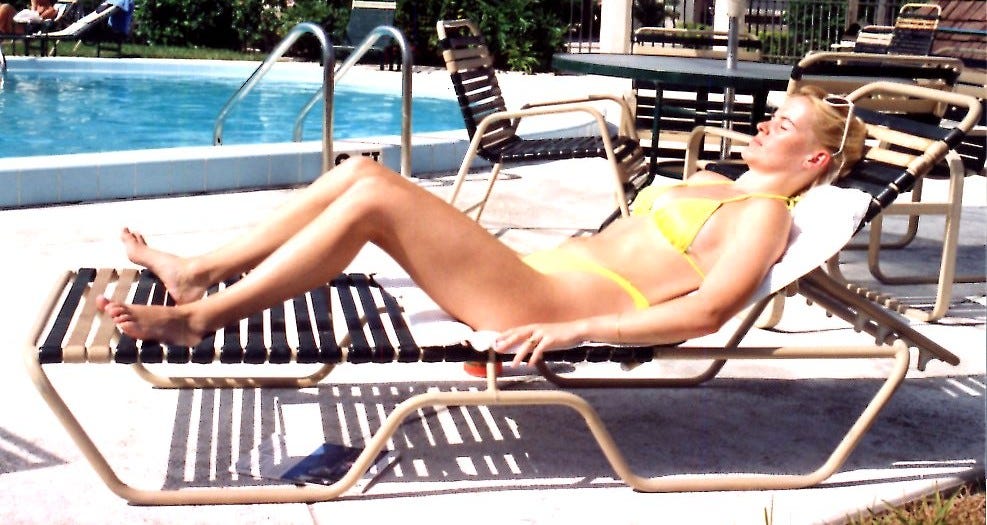
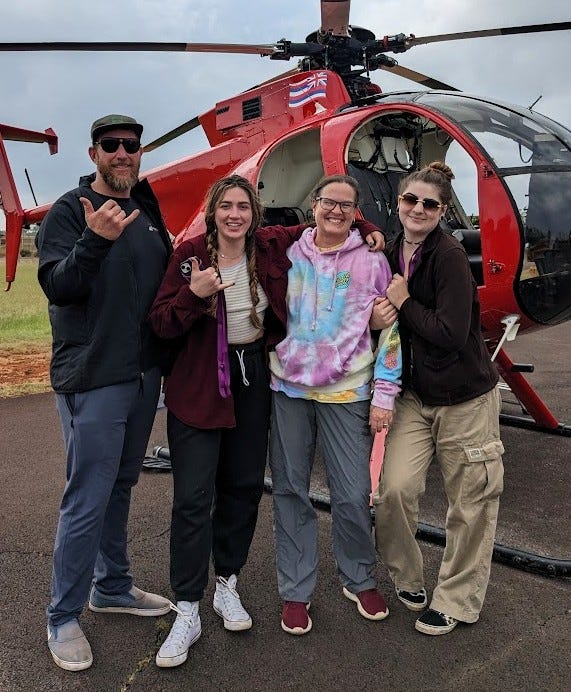

Wow! What a journey you have had! I feel so fortunate to be able to count you as one of my very best friends. Thank you for being my friend. !!!
I feel as if this article would be Excellent to be in a magazine. I feel like you should submit it to a magazine. Like the one that had Caitlyn Jenner on the cover in her underwear.
Along with a photo of you sunbathing with your scars. I feel like it would help a lot of women.
The Dove company commercials also go along the lines of what you share here too.
Thank you for sharing your story. Thank you for being my friend. I love you. 💛
Thank you, Jodi! I love you too.